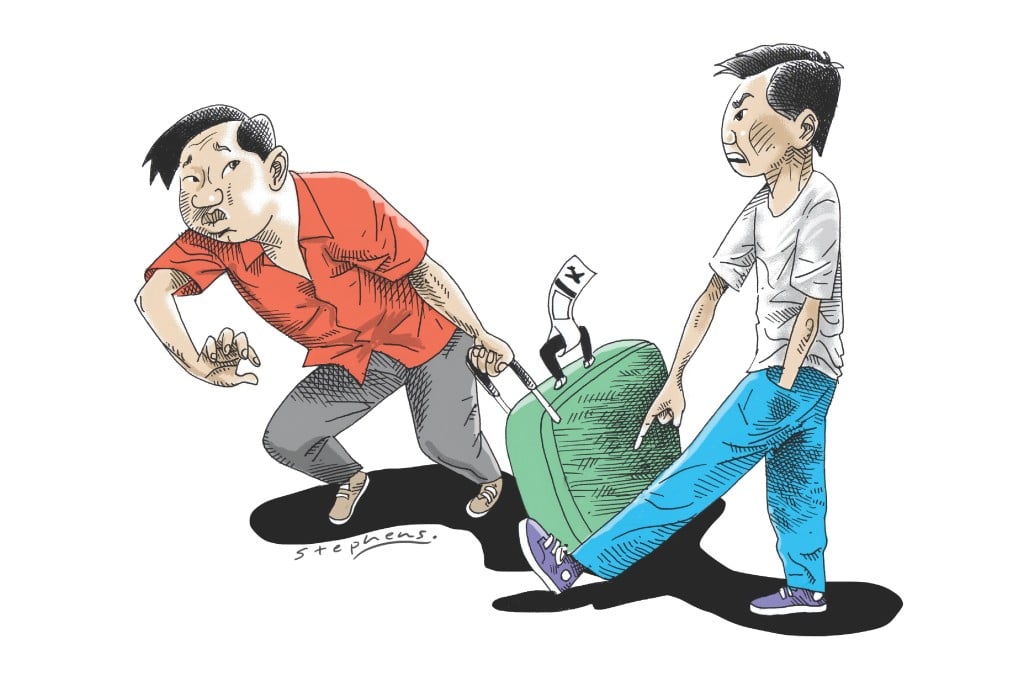In Hong Kong, fear of mainland influence hardens into prejudice
Keane Shum says whatever our stand on parallel traders or democracy, there's no denying that people in Hong Kong are uneasy over mainland influence. But turning it into an 'us vs them' issue doesn't help

We all have a story. A foot run over by a suitcase. A flight delayed by an unrestrained child. A quiet night at the cinema ruined by a tantrum. This is our war zone - remember, in this city, umbrellas are deadly weapons - and these our battle scars. We share our stories, we bond over them, the hurt they cause eased by the implication in every retelling that we are not like that. We are better.
My favourite story to tell is not my own. Last autumn, my girlfriend lined up for a minibus one evening in Admiralty. She was 14th in line for the 16 seats on the next bus when a young mainland Chinese man and his father rushed to cut in front of her. The father then counted heads and turned to my girlfriend.
"Lucky," he said to her, in accented Cantonese. "You're 16th!"
That is the message we keep hearing, from those who oppose the Umbrella Movement and the parallel trader protests, from our government, from Beijing: we are lucky just to be on the bus. We should be grateful, we are told, for enjoying the freedoms we already have, for being given more choice today than we had as a colony, for already being an exception to every other city in China.
Suitcase on your foot? Flight disrupted? Suck it up. If Snoop Dogg and Korean Air scions can get away with it, mainlanders should, too. They give us our water.
Only Snoop Dogg and Korean Air scions don't get away with it; they get arrested.